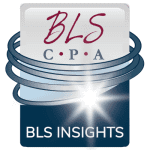 For S-Corporation owners, complex regulatory environments and constantly changing tax laws make deciding upon the correct method and amount to pay yourself a burdensome endeavor. S-Corporation owners have an incentive to characterize income taken out of their business as owner distributions instead of wages to avoid payroll taxes and create potential Qualified Business Income (“QBI”) deductions. However, the IRS retains the power to recharacterize distributions as wages if they determine the taxpayer mischaracterized them.
For S-Corporation owners, complex regulatory environments and constantly changing tax laws make deciding upon the correct method and amount to pay yourself a burdensome endeavor. S-Corporation owners have an incentive to characterize income taken out of their business as owner distributions instead of wages to avoid payroll taxes and create potential Qualified Business Income (“QBI”) deductions. However, the IRS retains the power to recharacterize distributions as wages if they determine the taxpayer mischaracterized them.
The current instructions for Form 1120S, U.S. Income Tax Return for an S-Corporation, state that “distributions and other payments by an S corporation to a corporate officer must be treated as wages to the extent the amounts are reasonable compensation for services rendered to the corporation.” But just what does “reasonable” mean? The answer is not always a simple one, and getting this wrong could cost you both a headache with the IRS and an unexpected tax bill. Here are some key points to consider that will help you see through the fog.
- Employee time and effort, duties, and credentials – How many hours per week do you spend working for your business, and what is the nature of the work you are doing? Do you possess any professional qualifications that you make use of when running your business? If you appear to be operating in the capacity of an employee, the IRS will likely think so too, and may recharacterize your distributions as wages.
- Compensation paid by other firms for similar services – If you were to hire someone else to take over the duties you perform, how much would you pay them? Or, if you did the same type of work for another company, how much would they pay you? Remember to consider salaries and benefits typical of your geographical region. This is one of the best ways to determine how much you should pay yourself in wages.
- Profitability of the business – Did the business have a substantial amount of net income in the current year relative to the past? The IRS may have overlooked little to no wages for an owner in past years with losses, but in a profitable year they will likely expect to see a “reasonable” wage if distributions are made.
- Wage and distribution history – How much salary was taken in prior years? A sudden decrease in salary without any other change in responsibility, profitability, or circumstance could draw attention from the IRS.
With the advent of the section 199A deduction as part of the Tax Cuts and Jobs Act (TCJA), the opposite could occur. Since the deduction is limited to 50% of the W-2 wages of the business, some taxpayers have an incentive to pay excessively high salaries to increase their maximum 199A deduction. It is important to remember that the IRS can also recharacterize excessively high wages as distributions, and that all of the relationships in the points noted above still hold true in these situations.
Reasonableness of S-Corporation owner salary has no clear-cut answer. Ultimately, it is based on the facts and circumstances of each case. Be sure to consult your tax advisor for assistance when making this determination.
Photo by Gareth Simpson (License)
